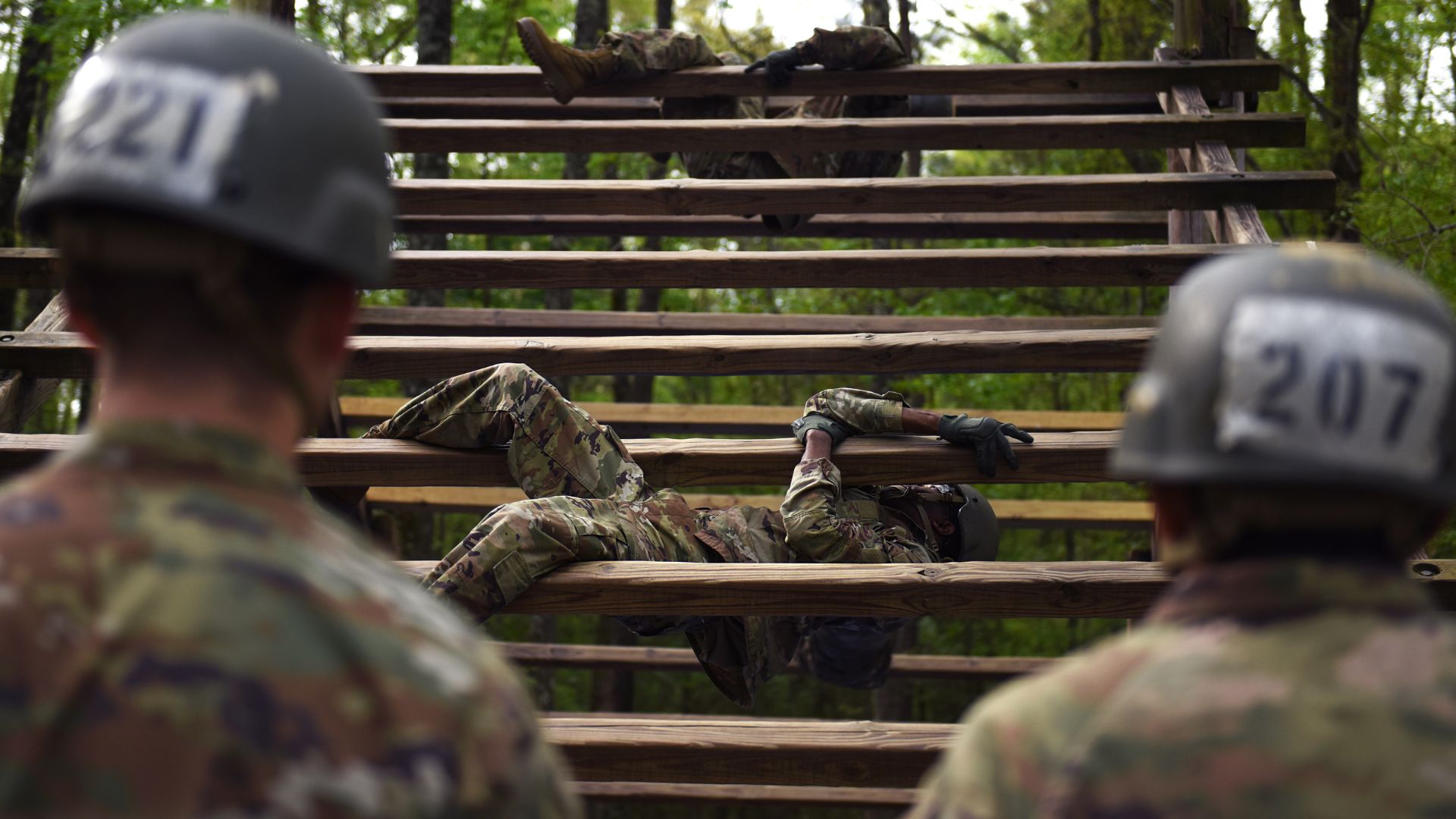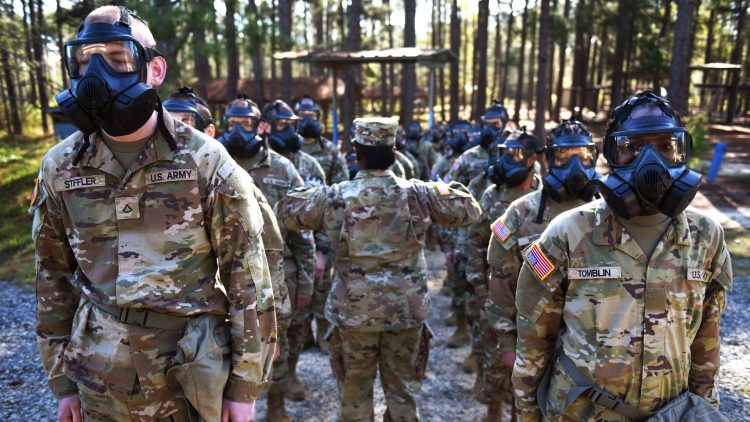Popular choices like Fort Cavazos in Texas and Fort Campbell in Kentucky offer proximity to recruits’ hometowns and expanded job opportunities, making military service more appealing.
However, the Army continues to face logistical challenges, including delays in medically processing recruits and limited basic training space, further highlighting the importance of strategic initiatives like the preparatory courses.

Female Recruits Drive 2024 Success
A key highlight of the Army’s recent recruiting efforts is the dramatic increase in female enlistments. Nearly 10,000 women joined the Army in 2024, an 18 percent jump from the previous year.
In contrast, male recruitment rose by just 8 percent, reflecting ongoing struggles to attract young men to military service.
Women have become an increasingly vital demographic for the Army, as they are statistically more likely to meet eligibility standards than their male counterparts.
Female applicants are less likely to have criminal records and are surpassing men in higher education attainment, with nearly half of women aged 25-34 holding bachelor’s degrees compared to 37 percent of men.
These factors, combined with broader societal trends, have positioned women as a key solution to the Army’s recruitment woes.
Despite this progress, the Army’s marketing strategies have yet to reflect the growing importance of female recruits.
Public-facing campaigns and advertisements still predominantly feature men, often by a two-to-three ratio, particularly in speaking roles.
Experts suggest that while the Army is not “pandering” to women, more inclusive messaging could further bolster female enlistment.
Challenges and Opportunities
The Army’s most significant recruitment obstacle remains the shrinking pool of eligible young Americans, particularly men.
Academic struggles, exacerbated by decades of declining test scores and the impact of the COVID-19 pandemic, have made it increasingly difficult for male applicants to meet minimum standards for service.
Boys lag behind girls in nearly every academic category, and high school graduation rates are lower among male students, with disparities especially pronounced in minority communities.
Programs like the Future Soldier Preparatory Course have been instrumental in addressing these gaps, with roughly 70 percent of participants being men who failed to meet initial academic or fitness requirements.
This initiative, alongside efforts to streamline medical processing and offer attractive enlistment incentives, has allowed the Army to stay on track toward its 2025 recruiting goal.
Meanwhile, the rise in female recruits has brought cultural shifts within the Army, as women increasingly fill senior leadership roles and prove themselves as vital contributors to the service’s success. By leveraging the strengths of a diverse talent pool and addressing systemic challenges, the Army is laying the foundation for long-term recruiting stability.
A New Era for Army Recruitment
The US Army’s recruitment progress in 2024 and early 2025 marks a turning point in addressing its historic challenges.
With female recruits leading the charge and innovative programs like the Future Soldier Preparatory Course bridging the eligibility gap, the service is on track to overcome its recruitment crisis.
However, persistent obstacles—such as the shrinking pool of eligible young men and logistical hurdles—underscore the need for continued adaptation and strategic investment in recruitment efforts.
As the Army moves forward, its ability to meet future challenges will depend on how effectively it builds on these successes and adapts to the evolving landscape of military recruitment.
For now, its recent achievements offer a hopeful glimpse of what’s possible when innovative solutions and demographic shifts align to strengthen America’s armed forces.










COMMENTS